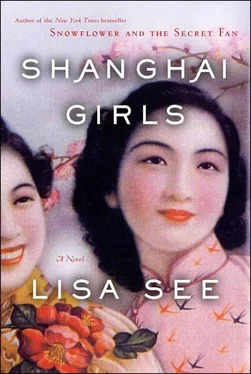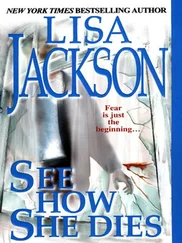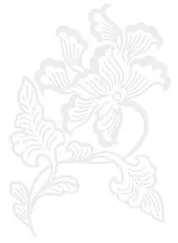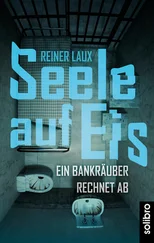Husbands and wives remain separated throughout their stays. In this way, they aren’t allowed to comfort each other or, more important, share information about their interrogations and the questions asked. On their wedding day, did the sedan chair stop at the front gate or the front door? Was it overcast or drizzling when they buried their third daughter? Who can remember these things when the questions and their answers can be interpreted in different ways? After all, in a village of two hundred people, aren’t a front gate and a front door one and the same? Can it matter how damp the weather was when they put that worthless daughter in the ground? Apparently it does to the interrogators, and a family whose answers to these questions don’t agree might be detained for days, weeks, and sometimes months.
But May and I are sisters and can compare stories before our hearings. The questions asked of us became increasingly difficult as the files for Sam, Vernon, their brothers, Old Man Louie, and his wife, business associates, and people in the neighborhood-other merchants, the policeman on the beat, and the man who makes deliveries for our father-in-law-are brought in. How many chickens and ducks does my husband’s family keep in their home village? Where is the rice bin kept in our home in Los Angeles and in the Louie family home in Wah Hong Village?
If we dawdle with our answers, the inspectors get impatient and shout, “Hurry up! Hurry up!” This tactic works well for other detainees, scaring them into making crucial errors, but we use it to appear as though we’re confused and stupid. Chairman Plumb grows increasingly annoyed with me, staring silently at me sometimes for a full hour in an effort to intimidate me into coming up with a new answer, but I’m stalling for a reason, and his attempts to bully and threaten me just make me calmer and more focused.
May and I use the complexity, simplicity, or idiocy of these questions to prolong our stays. To the question “Did you have a dog in China?” May answers yes and I answer no. At our hearings two weeks later, the inspectors for each of our interrogations confront us with this discrepancy. May sticks with our story that we owned a dog, while I explain that we once had a dog but our father killed it so we could eat it for our last meal in China. In the next hearing, the inspectors announce that we’re both right: the Chin family owned a dog but it was eaten before our departure. The truth is we never had a dog and Cook never served dog-ours or anyone else’s-in our home. May and I laugh for hours about our tiny triumph.
“Where did you keep the kerosene lamp in your home?” Chairman Plumb asks one day. We had electricity in Shanghai, but I tell him that we kept the kerosene lamp on the left side of the table, while May says that it was kept on the right.
Let’s just say these are not the brightest men. In our Chinese jackets, they don’t notice the baby growing inside May or the pillow and bunched up clothes I shove into my pants. After Chinese New Year, I begin to waddle in and out of the interrogation room and exaggerate my efforts at sitting and rising. Naturally, this brings a new round of questions. Am I sure I got pregnant on the one night I spent with my husband? Am I positive of the date? Mightn’t there have been someone else? Was I a prostitute in my home country? Is my baby’s father who I say he is?
Chairman Plumb opens Sam’s file and shows me a photograph of a boy of seven. “Is this your husband?”
I study the photograph. It’s a little boy. It could be Sam when he went back to China with his parents in 1920; it could be someone else. “Yes, that’s my husband.”
The recorder keeps typing, our files keep expanding, and along the way I learn quite a bit about my father-in-law, Sam, Vernon, and the Louie family’s businesses.
“It says here that your father-in-law was born in San Francisco in 1871,” Chairman Plumb says as he leafs through Old Man Louie’s file. “That would make him sixty-seven years old. His father was a merchant. Are these facts correct?”
From the coaching book, I’d learned everything but the year of Old Man Louie’s birth. I take a chance and answer “Yes.”
“It says here he married a natural-footed woman in San Francisco in 1904.”
“I haven’t met her yet, but I’ve heard she has natural feet.”
“In 1907 they went to China, where their first son was born. They left him in the home village for eleven years before bringing him here.”
At this, Mr. White leans over and whispers in his superior’s ear. They both shuffle through the files. Mr. White then points to something on one of the pages. Chairman Plumb nods and says, “Your alleged mother-in-law has five sons. Why did she have only sons? Why were they all born in China? Doesn’t that seem suspicious to you?”
“Actually, the youngest son was born in Los Angeles,” I offer helpfully.
Chairman Plumb gives me a look. “Why would your in-laws leave four sons in China before bringing them here?”
I’ve wondered the same thing, but I recite what I memorized: “My husband’s brothers grew up in Wah Hong Village because it was cheaper than Los Angeles. My husband was sent back to China to meet his grandparents, learn the home language and traditions, and make offerings to the Louie family ancestors on his father’s behalf.”
“Have you met the brothers?”
“Only the one named Vernon. The rest not.”
Chairman Plumb asks, “If your in-laws were together in Los Angeles, why did they wait eleven more years to have a last child?”
I don’t know the answer to this, but I pat my stomach and say, “Some women don’t take the proper herbs, eat the proper foods, or follow the proper rules for their chi to accept sons from their husbands.”
My backward-village answer satisfies my questioners for the day, but a week later their thoughts turn to my father-in-law’s occupation, trying to make sure he isn’t in the prohibited class of laborer. During the past twenty years, Old Man Louie opened several businesses in Los Angeles. Currently, he has just one store.
“What’s the name of the shop and what does he sell?” Chairman Plumb asks.
I dutifully recite my answer. “It’s called the Golden Lantern. He sells Chinese and Japanese goods, including furniture, silks, rugs, slippers, and porcelains, with a value of fifty thousand dollars.” Just having that number in my mouth is like sucking on sugarcane.
“Fifty thousand dollars?” Chairman Plumb marvels, equally impressed. “That’s a lot of money.”
Again, he and Mr. White put their heads together, this time to talk about the severity of their country’s depression. I pretend not to listen. They check Old Man Louie’s file, and I hear them say that, later this year, he plans to move his original store and open an additional two shops, a ride for tourists, and a restaurant. I rub my fake belly and feign disinterest when Mr. White explains the Louie family’s situation.
“Our colleagues in Los Angeles visit the Louies every six months,” he says. “They’ve never seen a connection between your father-in-law and a laundry, lottery, lodging house, barbershop, pool or gambling hall, or anything else objectionable. Nor has anyone ever reported seeing him do manual labor. In other words, he appears to be a merchant of good standing in the community.”
What I learn in my next interrogation, as Mr. White reads aloud in English portions of Sam’s and his father’s transcripts, which are translated into Sze Yup by yet another interpreter who’s been sent to cover the hearing, absolutely stuns me. Old Man Louie reported to inspectors that his business lost two thousand dollars a year from 1930 through 1933. That was a huge amount of money in Shanghai. Just one year’s worth of that money would have saved my family: my father’s business, the house, and May’s and my savings. Yet Old Man Louie still managed to come to China to buy wives for his sons.
Читать дальше












